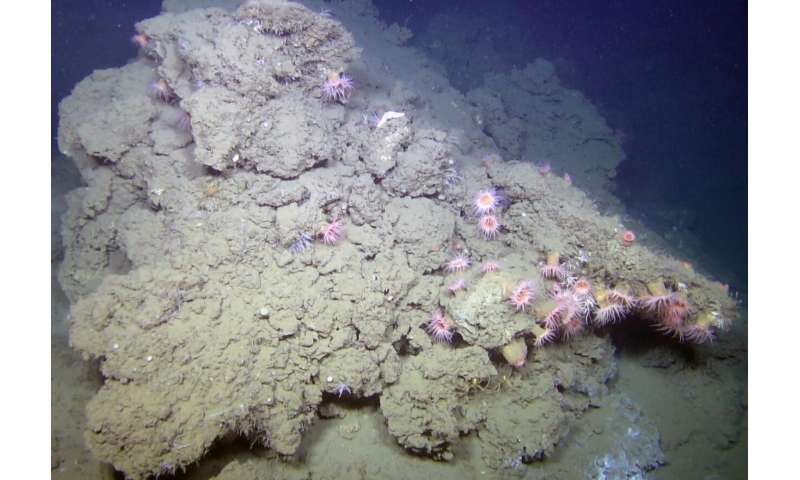Phys.Org - Ocean Methane Hydrate Releases Appear Linked To Continental Glacier Movements
EDIT

A seep carbonate mound on the Vestnesa Ridge seabed measuring approximately 1.5 meters wide and 1 meter high. Credit: NORCRUST
EDIT
After measuring the amounts of radioactive isotopes uranium and thorium found in the seep carbonates, scientists at the British Geological Survey were able to calculate the ages of the carbonate pieces. This data reveals three separate 10,000- to 20,000-year long methane emission episodes over the last 160,000 years. Methane was released when thick ice sheets moved in to cover Svalbard and the Barents Sea area, and later after the ice diminished.
"During ice sheet growth, the extra weight of the ice presses the Earth's crust downward. Following the melting of the ice, the crust rises again. Our data indicate that methane off western Svalbard emanated from the seabed primarily when ice sheet movements activated faults. How much methane was emitted, however, we don't know," explains Himmler.
Previous research has shown that methane emissions have occurred consistently since the last ice age, beginning about 23,000 years ago. Scientists from NGU and CAGE have now managed to -literally- drill further back in time using the MARUM's MeBo70 sea floor drill rig. The drilled seep carbonate samples reveal that there have been at least two older methane emission episodes in the past, between about 160,000 to 133,000 years and 50,000 to 40,000 years ago.
"Ice sheet dynamics is a new factor when considering the natural drivers of deep-sea methane release in the Arctic," says Tobias Himmler.
EDIT
https://phys.org/news/2019-08-ice-volume-seabed-methane-emissions.html
